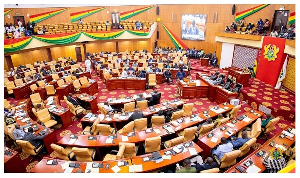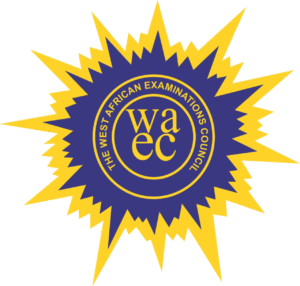Parliamentary Select Committee on Education Conducts Visits to Selected Schools in the Volta Region

A delegation from the Parliamentary Select Committee on Education has completed a two-day working visit to selected educational institutions across the Volta Region to gain a deeper understanding of the pressing issues facing these schools. The tour, which ended last Tuesday, was aimed at gathering direct information to inform government policy and support efforts toward improving educational infrastructure and learning conditions.
The delegation was led by the committee’s chairman and Member of Parliament for Akatsi North, Mr. Peter Nortsu-Kotoe. The schools visited included Bishop Herman College in Kpando, Awudome Senior High School in Tsito, Mawuli School and OLA Girls’ Senior High School in Ho, and the Evangelical Presbyterian University College (EPUC), also in Ho.
At Mawuli School, the headmaster, Mr. Benjamin Yawo Dei, outlined several critical challenges affecting the institution. He revealed that the school, which was founded in 1950 and offers a range of programmes including General Science, Agricultural Science, Business, Visual Arts, Home Economics, and Technical courses, currently has a total student population of 4,961. Of these, 4,383 are boarders while 578 are day students.
Despite its large enrolment, the school is grappling with severe infrastructure shortages. Mr. Dei stated that the school operates with only 96 classrooms, far below the number needed to meet the demands of the student body. According to him, an additional 32 classrooms are urgently required to allow the school to exit the government’s double-track system and transition to a more stable academic calendar.
The headmaster further highlighted the lack of sufficient on-campus housing for staff. Out of a total of 309 staff members—comprising 224 teaching and 85 non-teaching personnel—only 43 currently reside on campus. Other pressing needs identified include inadequate furniture for classrooms and dining halls, the absence of a school bus and pickup vehicle, and insufficient funding for electricity bills covering 38 pre-paid meters.
At OLA Girls’ Senior High School, the headmistress, Mrs. Benedicta Agbezudor, shared similar concerns. She reported an enrolment of 4,561 students and a staff of 219, made up of 155 teachers and 64 non-teaching staff. She noted that overcrowding has become a major challenge, with both classrooms and dormitories struggling to accommodate the growing student population.
“The level of congestion is affecting the effectiveness of teaching and learning,” Mrs. Agbezudor explained. “Our dining hall cannot seat all students at once, so they have to take their meals in shifts, which disrupts their academic schedule.”
The committee’s final stop was at the Evangelical Presbyterian University College, where the President, Professor Tsatsu Adogla-Bessa, made a case for increased government support to strengthen the institution’s capacity. He appealed for tax reliefs, financial assistance, and the establishment of a national research fund aimed at supporting under-resourced tertiary institutions like EPUC.
Prof. Adogla-Bessa emphasized that such support would not only aid in enhancing academic output but also boost research activities and innovation among smaller universities that often operate with limited resources.
Addressing the concerns raised during the tour, Mr. Nortsu-Kotoe assured the institutions that their challenges had been duly noted. He emphasized the importance of field visits in enabling the committee to witness the realities on the ground, which would inform more accurate and effective recommendations to Parliament and relevant stakeholders.
“Our aim is to bring these issues to the attention of the Ministry of Education and ensure that practical solutions are implemented. The government must prioritize investment in educational infrastructure and logistics to improve outcomes for students and teachers alike,” he stated.
The tour concluded with a renewed commitment from the committee to advocate for meaningful reforms and greater resource allocation to the education sector, particularly in underserved regions like the Volta Region.





